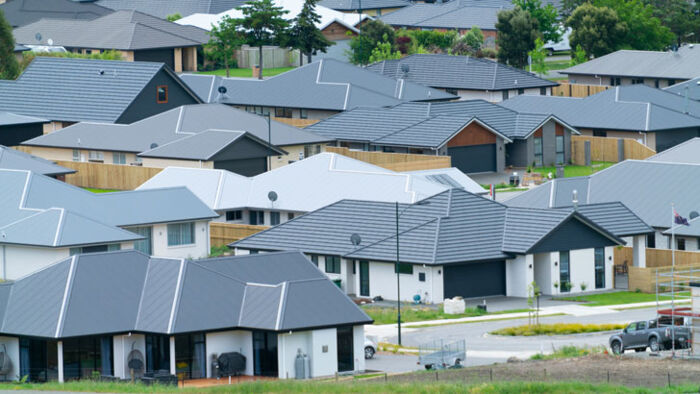Stamp duty changes on the horizon for NSW and Victoria
By Nicola Field
The tax man wants to know about your side hustle, Victoria cuts stamp duty on commercial properties, and NSW first home buyers set to pocket savings on stamp duty. Here are five things you may have missed this week.
Side hustles can't hide from tax man
The Australian Taxation Office (ATO) is reminding Australians to consider whether a money-making 'gig' is a business, and to declare all income when lodging this year's tax return.
Record numbers of Aussies are now working multiple jobs or supplementing their income with a side hustle.
ATO Assistant Commissioner Tim Loh says if you earn money through continuous and repeated activities for the purpose of making a profit, then it's likely your gig is a business and not just a hobby.
"While there are always new and different ways to make money, the tax obligations remain the same. Don't fall into the trap of forgetting to include all your income thinking the ATO won't notice," Loh says.
"With tax time just around the corner, if you are bolstering your income with new activities, make sure all your records are up-to-scratch," adds Loh.
"This could be anything from animal breeding to earning income through digital platforms, such as ride share or food delivery, or even online content creation, like social media influencers."
From 1 July 2023, the new Sharing Economy Reporting Regime will kick in, with the ATO receiving data from more electronic distribution platforms, in particular ride sourcing services and short term accommodation.
The ATO will match this information with the details on tax returns to identify income that has not been included.
"Every dollar dodged is a dollar that can't be used for vital services like health and education. The ATO needs to ensure there is a level playing field for everyone, with no unfair advantages," adds Loh.
Changes coming to CommBank app
This week saw the Commonwealth Bank announce a series of innovations designed to strengthen its customer experience as increasing numbers of Australians switch to digital banking.
CommBank CEO Matt Comyn announced a refreshed version of the bank's app, which will deliver individually tailored content and new dynamic navigation making it simpler and easier for its 7.7 million users.
The upgraded app will allow customers to buy, sell and hold shares through the integration of CommSec, while new functionality will enable business customers to switch between their personal and business accounts.
NSW scraps land tax for first home buyers
It's been a confusing few months for first home buyers in NSW, who've faced various changes to stamp duty exemptions.
Hopefully things will settle down from July 1, 2023, when the newly elected Labor Government plans to toss out the current First Home Buyer Choice scheme, and introduce what it describes as a "simpler, fairer stamp duty concession scheme".
First Home Buyer Choice, introduced in late 2022, gives first home buyers the option to pay upfront stamp duty or an annual land tax when buying a home valued between $650,000 and $1.5 million.
Under the Minns Government, the land tax option will be shelved, and the threshold for first home buyer stamp duty exemptions lifted from $650,000 to $800,000, with duty concessions on homes valued from $800,000 to $1 million.
The change will see a first home buyer purchasing a property for $800,000 save up to $31,090.
NSW Treasurer Daniel Mookhey says, "Now five out of every six first home buyers will get help to own the roof over their heads."
First home buyers who opted into the annual property tax can continue to pay that tax until they sell their home.
Victoria scraps stamp duty on commercial property
Victoria's Labor Government has pledged to abolish stamp duty for commercial and industrial properties in a bid to boost business growth and expansion.
The current lump-sum stamp duty system for commercial and industrial properties will transition to an annual property tax from 1 July 2024.
The annual property tax, to be set at a flat 1% of the property's unimproved land value, will be payable for 10 years after the property purchase.
The move follows the lead of South Australia, where stamp duty has been waived on commercial property since 2018.
On the flipside, the Victorian 2023-24 State Budget includes a new 10-year COVID Debt Levy designed to help repay the state's $31.5 billion pandemic-induced debt.
The levy includes increased land tax on investment properties and holiday homes, with the tax-free threshold to be cut from $300,000 to $50,000 from January 1, 2024, through to 2033.
An annual charge of $975 will apply to impacted properties valued between $100,000 and $300,000. Land tax rates for properties above $300,000 will rise by $975 plus 0.1% of the land's value.
An estimated 860,000 landowners will be affected.
Inflation drives cost of retirement to record high
Retirees continue to face upward pressure on household budgets amid historically high inflation.
Super industry body ASFA says the annual spending needed for a 'comfortable' retirement rose 7.7% over the past year, to hit a record high of $70,482 annually for couples, and $50,004 for singles.
"Retiree budgets have been under substantial pressure for over 18 months due to the higher cost of essential goods and services, namely food, fuel and electricity," says ASFA CEO, Dr Martin Fahy.
Self-funded retirees will not be eligible for Federal Budget measures aimed at relieving cost-of-living pressures, and ASFA says that despite recent adjustments to the Age Pension, payments continue to lag inflation.
On the bright side, Fahy believes the July 1 increase in the rate of compulsory employer super contributions to 11% (up from 10.5% at present) will put a greater number of Australians on track to achieve a dignified retirement.
Get stories like this in our newsletters.



